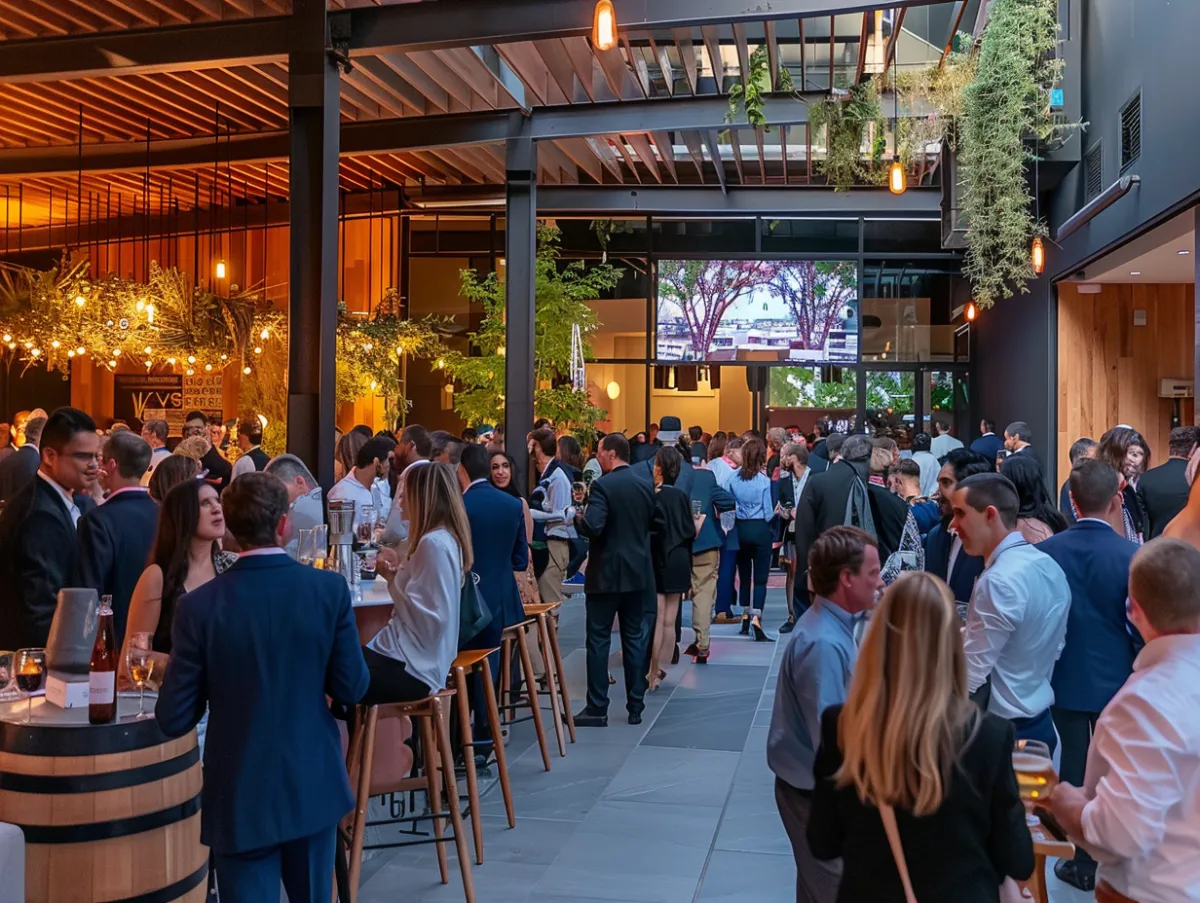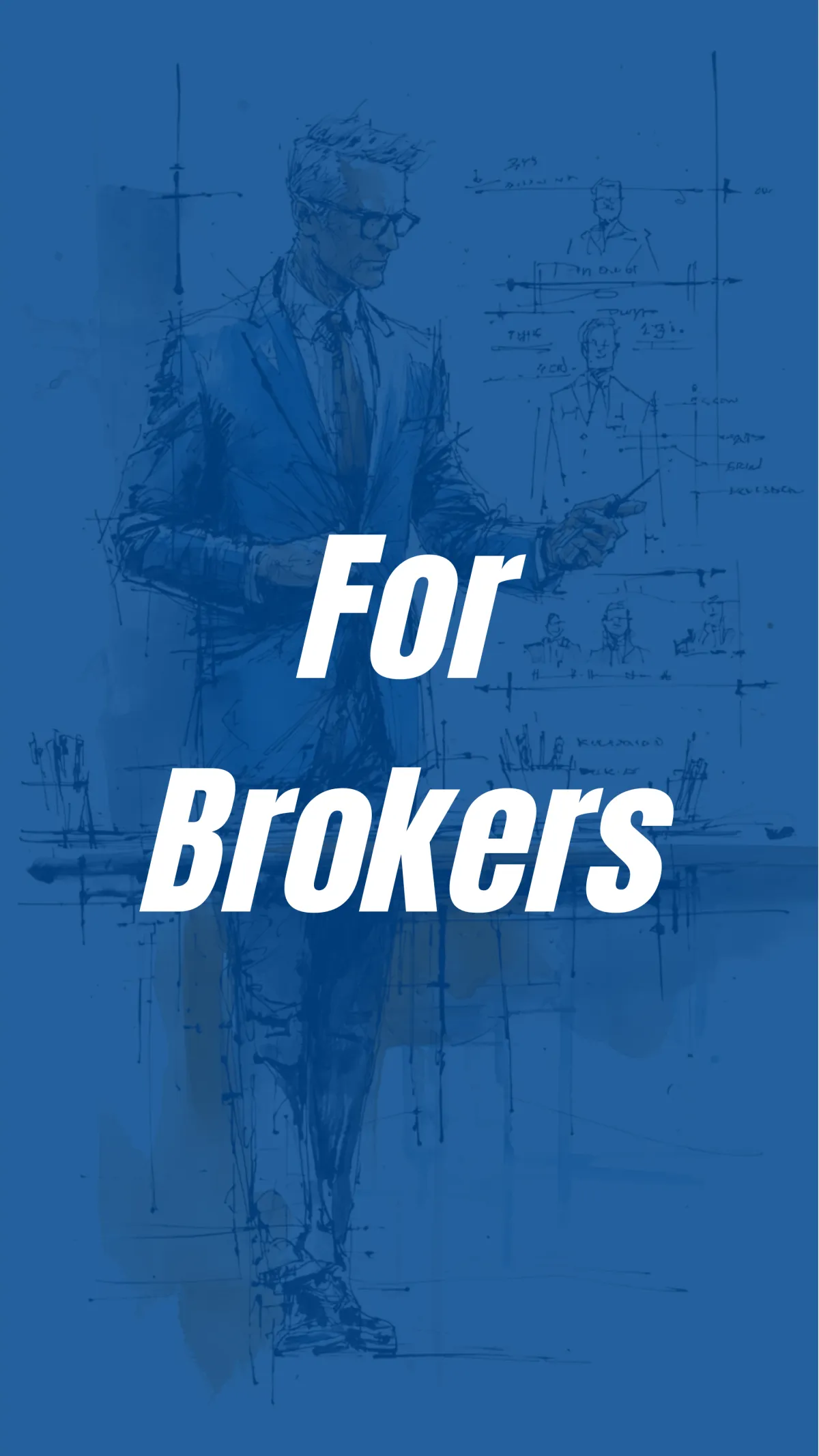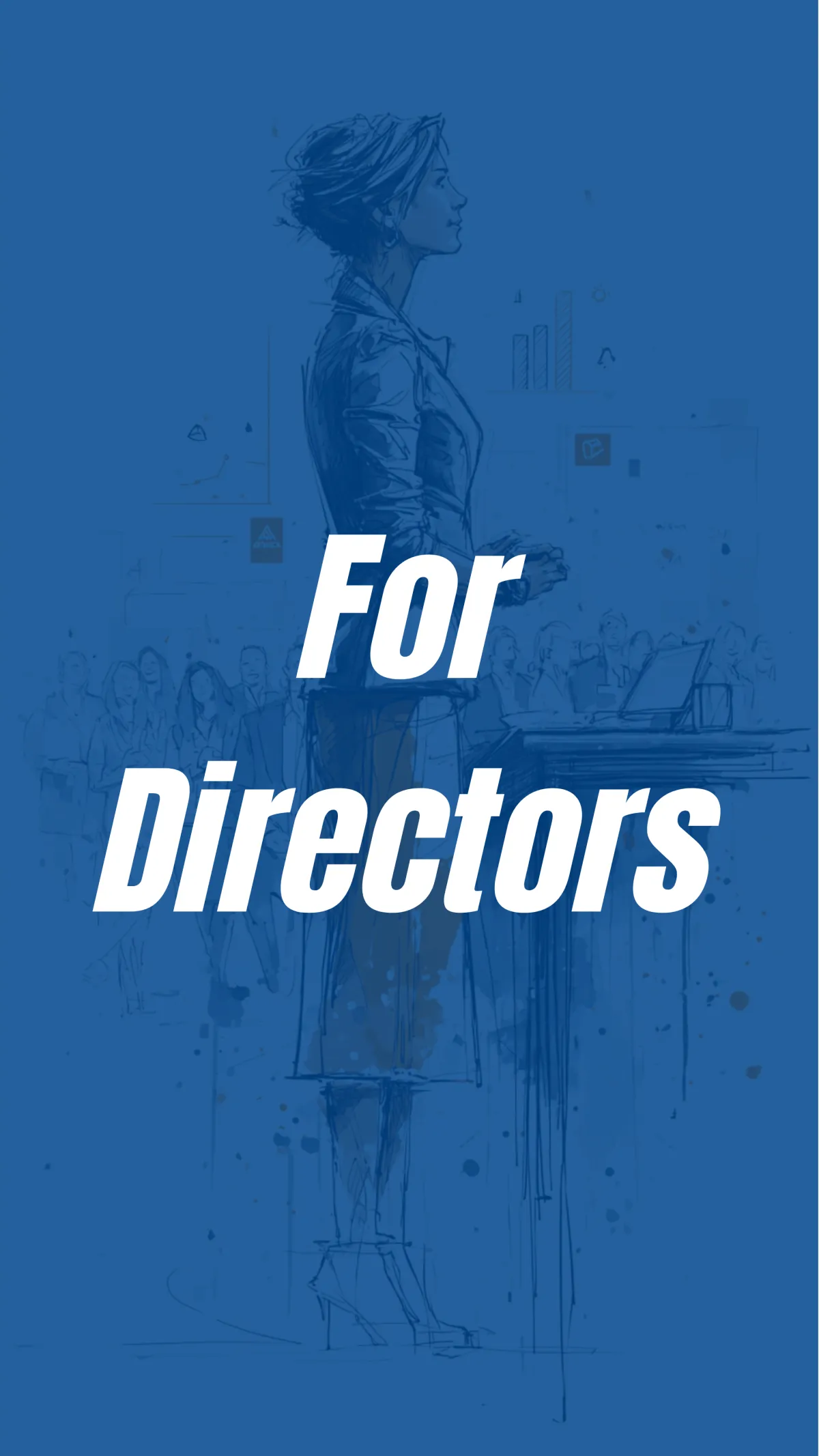
What Drives Engagement at Real Estate Events? Key Strategies
You pour your heart, time, and budget into planning real estate events. You picture a room buzzing with energy, connections happening, maybe even deals starting. But sometimes, reality falls short. The crowd seems distant, people check their phones, or worse, they leave early. You're left wondering, what drives engagement at real estate events?
It's a question many real estate professionals grapple with, whether you're a real estate agent trying to attract buyers, a broker firing up your team, or an association director aiming to provide excellent value. Getting people in the door is one thing; keeping them interested and participating is another challenge altogether. What really drives engagement at real estate events isn't just one magic trick; it's a blend of understanding people and smart planning.
Ready to turn these insights into real revenue for your real estate business? Stop struggling with marketing that doesn't deliver results. In just 20 minutes, we'll create a customized plan to help you implement these strategies and grow your business. No fluff, no cookie-cutter approaches – just practical solutions tailored to your specific challenges. Book your complimentary discovery call today at https://lesix.agency/discovery and start seeing real results.
It All Starts With Who You're Trying to Reach
What drives engagement at real estate events? Before you book a venue or design a digital marketing campaign, stop and think. Who is this business event really for? It sounds simple, but skipping this step is often why engagement fizzles out.
An event for seasoned brokers looking for high-level strategy needs a completely different approach than one for first-time homebuyers needing basic guidance. Trying to please everyone often ends up engaging no one deeply. Think about the specific real estate professional you want to attract; maybe they feel the pressure of the competitive market and need practical real estate marketing tips they can use tomorrow, not abstract theories.
Association directors often focus on broader issues, like industry insights or new regulations affecting their members. Broker owners might be most interested in technology that boosts their brokerage's efficiency, business development, or ways to attract top real estate agents. School owners need events that highlight continuing education relevance or changes in licensing.
Do you see how different their needs are? An event agenda that excites one group might bore another. So, get specific about the audience you're targeting:
Potential buyers or sellers?
New estate agents joining your brokerage?
Experienced real estate professionals needing motivation or new business strategies?
Industry partners like lenders or inspectors?
Association members seeking credits or knowledge for business growth?
Potential customers for your estate business?
Once you know your exact audience, every other decision becomes clearer. The topics, the tone, the activities – everything lines up with their specific interests and pain points. This focus is the foundation of genuine customer engagement and contributes to overall real estate success.
Give Them Something They Can't Get Elsewhere
People show up to events because they expect value. What kind of value? It usually falls into a few key categories, offering something they can't just find with a quick online search is critical for hosting events that stand out.
Educational Content That Solves Real Problems
Information is everywhere, but relevant, actionable knowledge is gold. Think about the real challenges your specific audience faces daily in the current real estate market. Can you bring in an expert to talk about adapting to shifts in property values or financing options?
Maybe offer a workshop on using social media effectively for listings or managing an email list for lead nurturing. Or present localized estate market data analysis that gives them a competitive edge. This type of practical education, focused on problem-solving, is always a draw for those wanting to gain valuable insights.
Exclusive Insights and Early Access
Everyone loves feeling like an insider. Can you give attendees a sneak peek at upcoming listings before they hit the general market? Perhaps share proprietary market research or forecasts from your real estate business.
Maybe you can secure a guest speaker – a local planning official, a respected economist, or a top-producing estate agent from another market – who offers a perspective not readily available online. Exclusivity makes attendance feel special and worthwhile, increasing the perceived value for potential clients and peers alike.
Networking That Feels Natural, Not Forced
Real estate is a relationship business. Events provide excellent opportunities for connection, but generic "mingling" can feel awkward. You need to help foster genuine interaction and valuable business networking.
Think about structured networking activities. Maybe speed networking sessions focused on specific topics like real estate investment or first-time buying, or small group discussions facilitated by table leaders. Even simple icebreakers that go beyond "What do you do?" can make a difference in building lasting relationships.
The goal is quality conversations, not just exchanging business cards. Encourage active participation and help attendees find common ground or potential business opportunities. This focus on connection can lead to future collaborations and referrals.
What Drives Engagement at Real Estate Events: Creating Memorable Moments
Engagement isn't just about the information presented; it's about the overall experience. How does the event make people feel? This is where you move from just hosting events to creating something memorable.
Think about events you've attended. Which ones stick in your mind? Probably the ones where you felt comfortable, connected, and maybe even had a little fun; people remember feelings more than facts.
Interactive Elements are Crucial
Sitting passively listening for hours is a recipe for boredom. You need to get people involved. Live polls during presentations are a great way to gauge opinions and keep attention focused.
Dedicated Q&A sessions, especially with expert panels, allow attendees to address their specific concerns. Consider hands-on workshops or even interactive property demonstrations, perhaps using virtual reality for tours if a physical open house isn't practical. Using event technology wisely can significantly boost interaction and make the experience more dynamic.

Make it Personal
Little touches can make a big impact. Greet people by name at the door if possible, perhaps using data collected during registration. If you noted specific interests (e.g., "interested in estate investment"), try to connect people with similar goals or point them toward relevant sessions or speakers.
Facilitate smaller group breakouts. People are often more willing to speak up and connect in intimate settings. Acknowledging individual presence makes attendees feel valued, not just like another number in the crowd, helping to nurture relationships.
Food, Fun, and Feeling Good
Never underestimate the power of good hospitality. Quality food and beverages show you care about your guests' comfort. Think beyond basic coffee and consider options like a themed happy hour or partnering with a local food truck for a casual gathering.
The venue itself contributes to the mood. Is it comfortable, well-lit, and easy to navigate? Sometimes, incorporating a small element of fun unrelated to the core real estate business – like a brief wine tasting, a local musician, or even a fun photo booth – can lighten the atmosphere and make the event more enjoyable.
Tailoring Engagement Strategies to Different Event Types
Not all real estate events are created equal, and your engagement tactics should adapt accordingly. The audience you're targeting and your business goals will heavily influence the format and focus. Let's explore some common event types and specific engagement ideas.
Open House Events
The primary goal of an open house is attracting potential buyers and showcasing a property. Engagement here means making visitors feel welcome and encouraging them to explore.
Greet everyone warmly and offer a brief property highlight sheet.
Strategically place information cards pointing out key features.
Offer light refreshments; this encourages lingering and conversation.
Have readily available information about the neighborhood, schools, and local business amenities.
Use a simple sign-in process (digital or paper) but respect privacy policy guidelines. Focus on gathering contact info for follow-up without being overly pushy.
Client Appreciation Events
These events are about strengthening relationships with past clients and referral sources. Engagement is about showing gratitude and fostering loyalty.
Focus on fun and relaxation, not sales. Ideas include a casual happy hour, a family-friendly picnic, or even a movie night.
Keep any presentations short and focused on thanks, perhaps sharing brief success stories.
Offer a small, thoughtful gift as a token of appreciation.
Facilitate mingling but keep it low-pressure. The goal is reinforcing positive feelings associated with your real estate business.
These events provide excellent opportunities to boost customer loyalty and generate referral business.
Agent Training & Team Building Events
For real estate teams or brokerages, these events focus on skill development, motivation, and strengthening team bonds. Engagement means active participation and learning.
Incorporate interactive workshops and role-playing exercises.
Break into small groups for brainstorming sessions on business strategies or market challenges.
Invite guest speakers who offer practical, valuable tips relevant to estate agents.
Include team-building activities that are fun and encourage collaboration.
Recognize achievements and celebrate success stories within the team.
Investor Seminars & Workshops
These events attract individuals interested in real estate investment. Engagement revolves around providing valuable insights and demonstrating expertise.
Present data-driven content on market trends, financing options, and investment strategies.
Feature expert panels (e.g., lenders, property managers, experienced investors).
Allow ample time for Q&A to address specific investor concerns.
Provide case studies or examples of successful estate investments.
Offer clear next steps for those interested in pursuing investment opportunities with your help.
Community Events & Outreach
Hosting or sponsoring community events positions you as a knowledgeable and engaged local real estate professional. Engagement involves connecting with community members on a personal level.
Consider sponsoring a neighborhood block party, perhaps featuring a food truck or local entertainment.
Host informational sessions on topics like understanding property values or navigating the local estate market.
Participate in local festivals or fairs with an interactive booth.
Partner with another local business for a joint event.
Focus on actively contributing to the community and building goodwill, which can lead to long-term business success. A neighborhood block party can be surprisingly effective.
Adapting your approach based on the event type and audience ensures your efforts are targeted and effective. Understanding the specific drivers for each scenario helps maximize active participation and achieve your desired outcomes, whether it's closing deals or building lasting relationships.
Consider creating a simple table to outline your strategy for different event types:

Logistics Matter for Engagement
You can have the best content and the most engaging speakers, but if the logistics are sloppy, engagement will suffer. Think about it: if people struggle to find parking, wait in a long check-in line, or can't hear the presentation, they'll quickly become frustrated. Poor execution detracts from even the best event ideas.
Paying attention to the details shows respect for your attendees' time and comfort. It creates a smooth backdrop against which your content and connections can shine, supporting your business goals.
Choosing the Right Time and Place
This seems obvious, but it's often misjudged. Is the venue easy to get to for your target audience? Is parking readily available and affordable (or free)? Consider your audience's typical schedule; mid-morning might work better for real estate agents than late afternoon when they're wrapping up.
Factor in traffic patterns. Also, think about virtual or hybrid options. Offering an online component can broaden your reach and cater to those who can't attend in person, a strategy many real estate businesses are adopting to stay competitive.
Make sure the chosen time and location are convenient for the majority of your target group. The right setting facilitates positive interactions and focus.
Smooth Communication is Essential
Engagement starts before the business event even begins. Send clear invitations via your email list and other channels with all necessary details: date, time, location, parking info, agenda highlights, speaker bios, and a clear call to action for registration. Use an easy online RSVP system, and be transparent about your privacy policy regarding collected data.
Send timely reminders leading up to the event. Afterward, follow up promptly with thank you notes, presentation slides (if promised), links to resources, or even recordings. Establish regular, professional communication to build anticipation and trust, potentially offering customer support for registration issues.
Technology That Helps, Not Hinders
Make the check-in process quick and painless, perhaps using QR codes or an event app. Test all audio-visual equipment thoroughly beforehand – poor sound quality is a major engagement killer. Make sure microphones work, slides are visible, and any videos play smoothly.
Reliable Wi-Fi is practically a necessity these days for both presenters and attendees. If you're using event apps for interaction, schedules, or networking opportunities, make sure they are intuitive and work correctly. Technology should support the event and enhance customer engagement, not become a source of frustration.
Getting the Word Out (and Getting People Excited)
You've planned an amazing event, but it won't engage anyone if people don't know about it or aren't motivated to attend. Promotion is crucial for building buzz and driving registrations for your real estate marketing efforts.
Effective promotion isn't just announcing the event; it's about telling a story and highlighting the value proposition you so carefully crafted. It's about convincing potential attendees that this event will help them gain valuable knowledge or connections.
Start Early, Be Consistent
Don't wait until the last minute. Begin promoting your event several weeks in advance, especially if it requires significant time commitment or travel from attendees. Tease the content, highlight speakers, and mention any exclusive opportunities to create anticipation.
Use multiple channels consistently: email marketing to your curated email list, posts on relevant social media platforms, updates on your website, mentions in newsletters (yours or your partners'), and maybe even personal outreach to key individuals or potential customers. Maintain a steady drumbeat of communication using effective digital marketing techniques.
Leverage Your Network
Encourage your speakers, sponsors, and any partner organizations (like a local business association) to share the event details with their own networks. Word-of-mouth marketing from trusted estate professionals is incredibly powerful.
Ask past attendees who had a positive experience to spread the word. Consider creating easy-to-share graphics or text snippets for your supporters to use. A personal recommendation often carries more weight than a generic advertisement when reaching potential clients.
Clear Call to Action
Make it incredibly easy for people to understand what the event is, why they should attend (what value they will gain), and how to register. Use clear, action-oriented language on all your promotional materials.
Your registration process should be simple and quick. Avoid asking for too much unnecessary information upfront. The path from seeing the promotion to completing registration should be as smooth as possible to maximize conversions.
How Do You Know If It Worked? Measuring Event Success
After the event wraps up, how do you measure if you successfully drove engagement and achieved your business success metrics? Attendance numbers are just one piece of the puzzle. True engagement goes deeper, impacting your bottom line and business development.
You need ways to gauge participation levels and understand the attendee experience through event data. This feedback is vital for improving future events and demonstrating ROI. Tracking event success involves looking at both qualitative and quantitative key metrics.
Think about incorporating these methods:
Asking for direct feedback via short post-event surveys sent to your email list. Keep them brief and focused on key aspects like content value, networking opportunities, speaker quality, venue satisfaction, and overall experience. Offer an incentive for completion.
Observing during the event. Were people actively contributing during Q&A? Were they networking during breaks? Did they seem attentive during presentations, or were they distracted? Assign staff to observe specific sessions.
Monitoring social media mentions using a dedicated event hashtag. What was the sentiment? Were people sharing photos or key takeaways? This provides organic feedback.
Tracking specific outcomes tied to your business goals. Did the event generate qualified leads? Did attendees schedule follow-up consultations? Did association members report learning valuable skills applicable to their estate business? How many potential customers converted?
Having brief, informal conversations with attendees as they leave. Ask simple questions like, "What was the most valuable part for you today?" or "What could we improve for next time?"
Analyzing registration data versus attendance numbers (show-up rate).
Reviewing feedback provided through event apps, if used (e.g., session ratings, poll results).
Gathering this information helps you understand what resonated and what could be improved. Measuring key metrics provides concrete event data to justify the effort and guide future planning. These valuable insights are essential for refining your event strategy and ensuring future real estate success.
Conclusion
So, let's circle back to the main question: what drives engagement at real estate events? It's not flashy gimmicks or expensive venues alone. It boils down to a thoughtful combination of understanding the audience you're targeting deeply, offering genuine value they can't easily get elsewhere, creating a positive and interactive experience through active participation, nailing the logistics, promoting effectively, and diligently tracking event success through key metrics and feedback.
When you focus on making your attendees—be they potential clients, fellow real estate agents, or community members—feel understood, respected, and connected, they are far more likely to engage actively and walk away feeling their time was well spent. That genuine connection, built on careful planning, providing excellent customer support, and empathy, is the real secret to hosting events that buzz with energy, build lasting relationships, nurture relationships, and ultimately help you achieve your real estate business goals in a competitive market.
Don't let another day pass without a clear marketing strategy that actually works. In just 20 minutes, we can develop a customized plan to help you implement these ideas and start generating real revenue. Our discovery calls have helped hundreds of real estate professionals just like you transform their marketing from a source of stress to a growth engine. Take the next step now – visit https://lesix.agency/discovery to book your complimentary session and start building the business you deserve.










